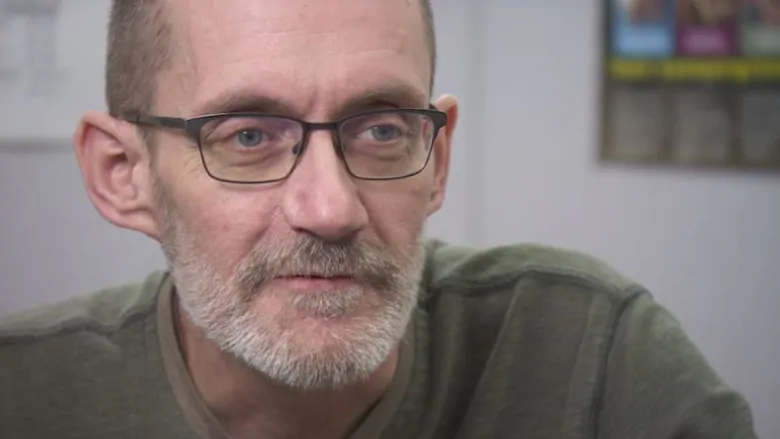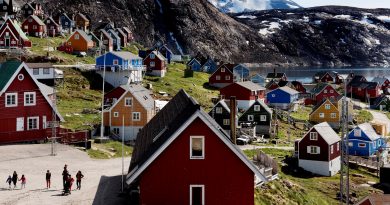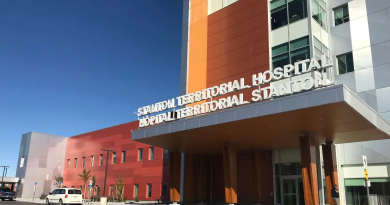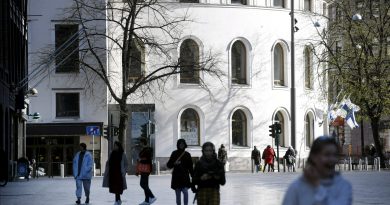COVID-19 could hit Nunavut harder than elsewhere, says Canadian territory’s top doctor

Nunavut’s top doctor says it’s only a matter of time before the novel coronavirus, or COVID-19, reaches the territory.
Dr. Michael Patterson, Nunavut’s chief medical officer of health, said in a news conference Monday that the actions of Nunavummiut over the next few weeks will determine how badly the territory could be hit by COVID-19.
Practicing social distancing, regular hand washing, and self-isolating when people feel sick can help contain the virus.
“The fact is that COVID-19 has the potential to have a much greater impact on Nunavut than other jurisdictions,” Patterson said.
Premier Joe Savikataaq noted that overcrowded housing is an obstacle to keeping the community healthy.
“Even in a crowded house, the hygiene of washing your hands and not touching and not sharing stuff will make a big difference on the spread of the virus, even within the house,” he said.
As of Tuesday, there were no confirmed cases of COVID-19 in Nunavut. The territorial government says it will inform the public if there are any confirmed cases.
What is social distancing? For Nunavummiut, it means some tough choices-not kuniking, not hugging Elders, not shaking hands, not pre-chewing food for babies and toddlers, staying away from community events and staying home if you don’t feel well. #COVID19 #FlattenTheCurve pic.twitter.com/55z1AdgzHd
— Premier Joe Savikataaq (@JSavikataaq) March 17, 2020
Savikataaq said about 50 tests for COVID-19 have been completed in Nunavut. About half have come back negative and the rest are still waiting for results.
A spokesperson from the Nunavut Department of Health said turnaround times vary for COVID-19 tests across the territory.
In Iqaluit, tests can come back within two to three days, while in other Nunavut communities it can take up to a week. The weather can cause flight delays, impacting when the results come back, but the territorial government says that hasn’t happened yet.
The government says once commercial testing becomes available, they will be able to get results much quicker.
How health centres are preparing for COVID-19
Savikataaq said all Nunavut health centres have been stocked with proper safety equipment for health care workers to deal with COVID-19. That includes two weeks’ worth of safety masks, goggles, disposable gowns and gloves.
Rankin Inlet, Cambridge Bay and Iqaluit have extra supplies if communities need more.
However, Savikataaq said self-isolation is the first line of defence in making sure health care centres don’t become overburdened.
Savikataaq said about 80 per cent of people who contract COVID-19 will not need medical attention. They will be asked to self-isolate and practice social distancing to stop the spread.
People who do need medical attention will be dealt with on a case-by-case basis, he said.
What to do if you think you may have COVID-19
Symptoms for COVID-19 are a cough, difficulty breathing and fever. People with symptoms are asked to call their local health centre rather than attend in person.
“We want to do all we can to keep [the communities] from having an outbreak and if we do our part as Nunavummiut then we can sure lessen that,” Savikataaq said.
Savikataaq, Patterson and Health Minister George Hickes, plan to hold a press conference every day at 3 p.m. to update the public on COVID-19.
Related stories from around the North:
Arctic: Roundup of COVID-19 responses around the Arctic, Eye on the Arctic
Canada: Canada’s Inuit could be disproportionally affected by coronavirus, says national organization, CBC News
Finland: Finland’s first coronavirus case confirmed in Lapland, Yle News
Greenland: COVID-19: Arctic science expedition postpones flight campaign after trainee tests positive for virus, Eye on the Arctic
Norway: Norway cancels NATO Arctic military exercise due to coronavirus outbreak, The Independent Barents Observer
Russia: Coronavirus: Russia hints it might close its border with Norway, Finland, The Independent Barents Observer
Sweden: Swedish Public Health Agency says border closures ‘won’t work’ against coronavirus spread, Radio Sweden



